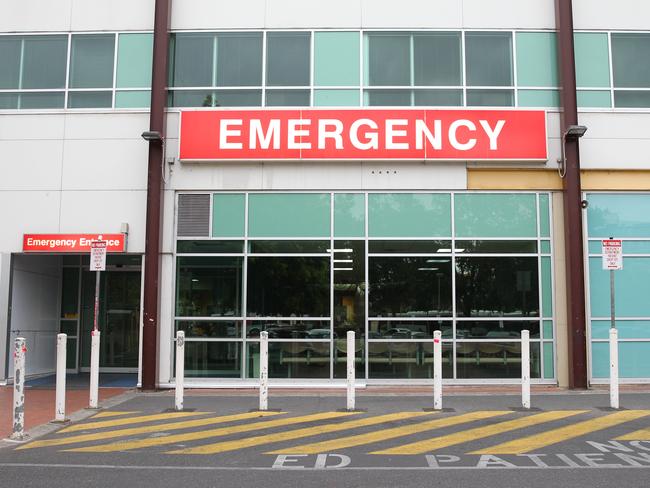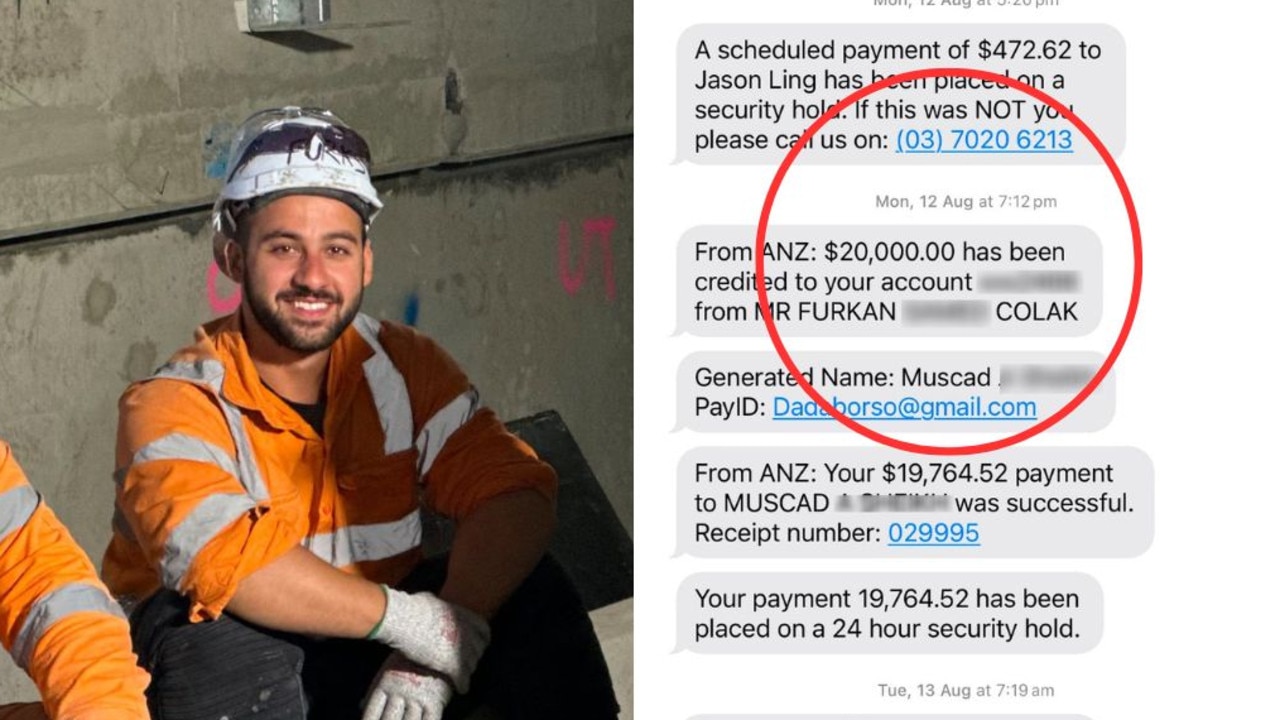Customers being warned of price increases and changes to private health cover
MANY Australians are paying hundreds for this every year but really shouldn’t as they are not benefiting from it, one expert says.
IF YOU are confused by private health insurance and not sure whether it’s worth it, you are not alone.
Australia’s private health system is now so complex that most people find it difficult to assess whether it’s worth paying extra for.
Recently one of the country’s biggest insurers Bupa announced significant changes to the services it would fund, sparking outrage among customers and raising fears that it would lead to the Americanisation of Australia’s health system.
“Bupa’s new arrangements, which only provide maximum benefits for patients in hospitals with Bupa contracts, undermine the role of the doctor in providing and advising the most appropriate care — and could ultimately drive up out-of-pocket costs for patients,” AMA President Dr Michael Gannon said.
The change also comes after the Federal Government approved an increase to health insurance premiums that will see costs rise by almost $150 a year for most families from April 1.
Bupa has defended its actions saying it wanted to make the system more transparent and ensure customers were not charged out-of-pocket costs they were not expecting.
Australian Health Care Reform Alliance chair Jennifer Doggett said she accepted the rationale behind some of the changes Bupa had made but they had made a complex system even worse.
“It’s putting more constraints and adding confusion for consumers and making it harder for them to assess whether insurance is worth it, and what they are entitled to,” she told news.com.au.

It also reflected the power struggle between doctors and private insurers, with doctors wanting the freedom to do their jobs without constraints, while insurers struggle to keep down costs and keep the system efficient.
“Bupa is moving to become a more active purchaser, using its bargaining power to do deals with hospitals and reduce costs,” Ms Doggett said.
“But do we want Bupa — a profit-driven private company — making those decisions without transparency?”
Ms Doggett said the role of private health insurance after Medicare was introduced had never been agreed and it has since struggled to remain relevant. The system was now a mess and should be reviewed.
“I don’t think consumers should accept it. It’s a terrible deal at the moment,” she said.
“We are paying a lot in taxes, which is going towards profits for health funds and we are getting a terrible product that doesn’t meet people’s needs. We absolutely shouldn’t be accepting it.”
In the short term, Ms Doggett said consumers needed to do their research to ensure they are getting the best deal.
“For most people it’s clearly not worth it, and it’s certainly not worth it for us as a community to keep supporting it (the private system) through public subsidies,” she said.
She said health economists from all sides of the spectrum seemed to be in agreement that the private health insurance system is broken and can’t be fixed.
Ms Doggett said other options to fund private health could be for consumers to pay directly for the services, like they do for GPs, and receive a subsidy back.
“It doesn’t need to be via an insurance product,” she said. “We don’t need to buy into the ‘disaster scenario’ where things would collapse if the private insurance system was wound up.
“It’s a complex area and part of the problem for consumers is there are a lot of vested interests who want to protect their particular patch.”
Labor has said it will refer private health insurance to the Productivity Commission if it wins the next election but the Turnbull Government has so far not indicated it will look at the system as a whole.
The Health Minister has referred Bupa’s changes to the Ombudsman but Ms Doggett said it could only assess the company’s actions within the current system and couldn’t really make policy recommendations.
For those confused about Bupa’s changes, here’s what’s happening.
Customers will only be able to use the Medical Gap Scheme in public hospitals if they pre-book their treatment as a private patient at least two working days before admission.
What this actually means: This mainly impacts people who turn up at public hospitals in an emergency situation. Big takeaway: Don’t admit you have private cover if you are taken to a public hospital in an emergency.
At the moment many public hospitals ask patients if they have private health cover, and if they do, patients can be sent expensive bills afterwards for doctor fees not covered by their policies.
Bupa actually don’t want people to be admitted as private patients because it says their care should be free and fully covered by the public system in an emergency situation.

There is also practically no benefit to being a private patient as you can’t choose your own doctor in an emergency situation. Bupa believes it’s not fair that people aren’t giving “informed financial consent” to being charged these costs (which is a bit hard to do if you are seriously injured).
If you do, be prepared to pay a lot more for this. At the moment Bupa covers a proportion of your doctor fees even if they charge more than the recommended rate set in the Medical Gap Scheme. After August 1, Bupa will continue to pay 25 per cent of the recommended rate (as required by legislation) but won’t contribute to doctor fees higher than this. This leaves the patient to foot a much higher bill.
Bupa says its charges are partly aimed at gaining more transparency for patients who don’t realise how much doctors are charging. But it also means Bupa will be paying less and will be leaving it up to customers to ensure they are treated as public patients in emergency situations.
What if you have surgery booked in a private hospital, as a private patient?
You should check if the hospital is one that Bupa has a Members First, Network or Fixed Fee agreement, as if it isn’t, you will pay more of the out-of-pocket costs.
Bupa says it has contracts with 271 private hospitals and 212 private day clinics in Australia. This covers an estimated 94 per cent of private hospitals and 62 per cent of day clinics (this figure includes cosmetic surgery clinics that do not have contracts with private insurers).
In Bupa-affiliated hospitals, Bupa will pay 100 per cent of the hospital costs (not including any excess patients agree to pay as part of their policy). When it comes to doctor fees, Bupa makes a contribution to the recommended rate set by Medicare and also pays a bit more on top if doctor fees are higher than this.
For hospitals that don’t have a contract, Bupa will now only pay its portion of Medicare’s recommended rate for both hospital and doctor fees. This means out-of-pocket costs for patients will be higher as they will be covering more of the fees themselves.

What about the changes to policies?
From July 1, Bupa will no longer pay benefits for certain procedures to customers who are on cheaper policies.
These procedures will no longer be part of the “minimum benefits” package:
• Hip and knee replacement;
• Cataract and eye lens procedures;
• Renal dialysis for chronic renal failure; and
• IVF and assisted reproductive services
If you want cover for these services you should upgrade your policy. The good news is that Bupa will cover the full hospital costs of these procedures, whereas before it was only paying about 20 per cent of this cost. It will also waive waiting periods. The bad news is, you’ll have to pay more for a upgraded policy. Doctor fees will still be extra on top of this.
Bupa says it is making these changes to be in line with Government changes to rate policies as gold, silver or bronze and ensure patients understand what they are covered for.
“We’re actually the last major insurer to remove them from the policy so customers wouldn’t be able to transfer to another insurer for that offer,” a spokesman said.
Bupa has also announced a 3.99 per cent premium increase from April 1, but you can avoid this if you pay the premiums for the next year before this date.
If you want to reassess whether you really need private health cover, Choice has a quiz, and also compares policies.
Email: charis.chang@news.com.au | Twitter: @charischang2




